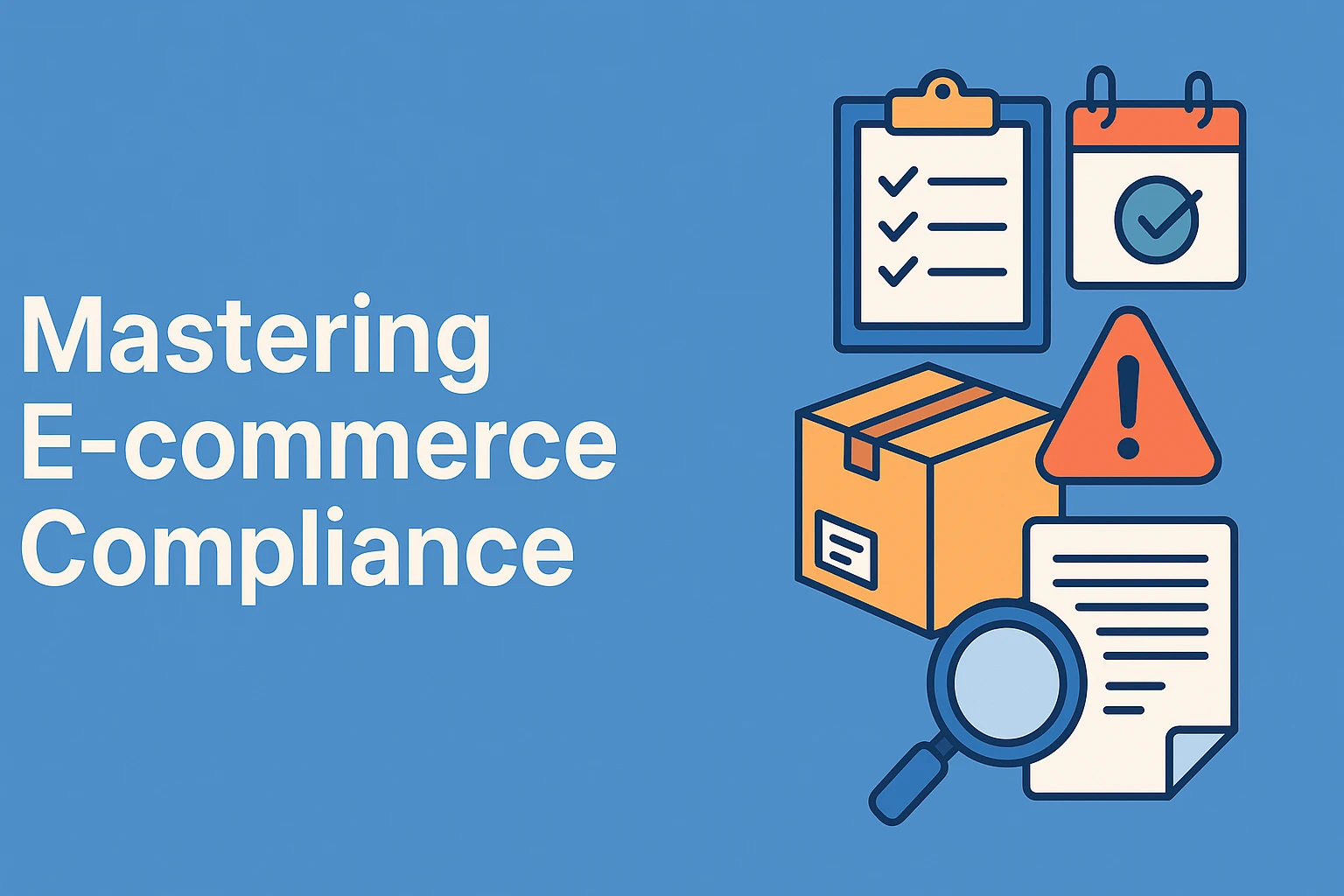- Perfality
- November 5, 2025
- 11:00 am
- Read Time: 5 mintues
E-commerce compliance doesn’t usually fail because of one giant mistake. More often, it’s small details overlooked again and again: the wrong prep type for an item, labels placed in the wrong spot, or a missed routing request. Add them up, and suddenly you’re facing penalties, delays, and frustrated teams. Between the strict rules of FBA Compliance and the demands of Vendor Central, even experienced sellers slip.
At Perfality, we’ve seen how these gaps drain time and money. The truth is, compliance isn’t just about avoiding penalties—it’s about creating reliable systems that lower Operational Risk and keep your business moving forward.
Why compliance breaks down
Most sellers don’t fail at compliance because they don’t care. They fail because processes aren’t connected. The product team changes a dimension, but the warehouse never gets the update. The carrier follows one set of instructions, while Vendor Central expects another. Deadlines get tight, and the “small stuff” is skipped—only for that small stuff to trigger chargebacks.
For FBA Compliance, the issues are almost always packaging and labeling. Fragile goods shipped without bubble wrap, cartons with barcodes on seams, or incorrect inner pack counts—all lead to rejections. With Vendor Central, the problems are more about timing: PO acceptance windows, labeling rules, and ASNs that don’t match shipments. Each mistake piles onto Operational Risk and eats into profit.
How to stop failing FBA Compliance
FBA Compliance can feel straightforward when everything is standard. But as soon as you deal with seasonal bundles, oversized units, or updated prep instructions, the margin for error grows. The smartest teams don’t rely on memory—they rely on checklists.
A solid compliance checklist should:
- Tie SKU-level details (dimensions, prep, labels) directly to fulfillment rules.
- Flag exceptions, like multipacks or fragile goods, before the warehouse starts prep.
- Require sign-offs at each stage—prep, pack, and ship—so nothing slips through.
Perfality often helps brands set up these “living checklists” so teams don’t waste hours fixing shipments that could have gone right the first time.
Mastering Vendor Central requirements
If FBA is tough, Vendor Central can feel even trickier. Here, it’s not just about getting shipments out—it’s about meeting every rule the retailer sets: correct pallet patterns, label placement, ASN accuracy, and strict PO acceptance timelines. Miss one, and chargebacks hit.
The key is to turn those rules into predictable workflows:
- Validate pack sizes, UPCs, and ship windows before you accept a PO.
- Confirm pallet height and ticketing before you book routing.
- Double-check ASNs against line items before sending.
Teams that do this consistently reduce Operational Risk and avoid the frustration of losing margin to small misses. Perfality often helps sellers “hard-wire” these steps into daily operations so Vendor Central stops being a guessing game.
Reducing Operational Risk with smarter checklists
Checklists work when they mirror the way your team actually operates. The most effective sellers:
- Keep one “source of truth” file with SKU dimensions, packaging types, and labeling rules (removes common FBA Compliance errors).
- Use short stage-based checks before each shipment milestone (avoiding last-minute Vendor Central penalties).
- Track exceptions—like rejected shipments or labeling disputes—and bake the fixes back into future checklists.
That’s how Operational Risk drops: not through endless firefighting, but by preventing the same errors from happening twice.
How Perfality fits in
Perfality works with brands that are tired of compliance surprises. Our role isn’t just pointing out problems—it’s designing systems that stop them from happening. We:
- Build SKU-based compliance playbooks for FBA Compliance
- Automate Vendor Central timing checks into daily workflows
- Turn exception logs into weekly action items so Operational Risk steadily shrinks
Because we act as an embedded back office, your team stays focused on growth while compliance runs in the background, smoothly and consistently.
Final takeaway
Failing compliance isn’t about careless teams—it’s about fragile systems. When you bring structure to FBA Compliance and Vendor Central, errors shrink, penalties fall, and operations stabilize. By reducing Operational Risk, you protect revenue and keep your brand moving forward.
Perfality helps eCommerce businesses put those systems in place so compliance stops being a headache and starts being a competitive edge.






